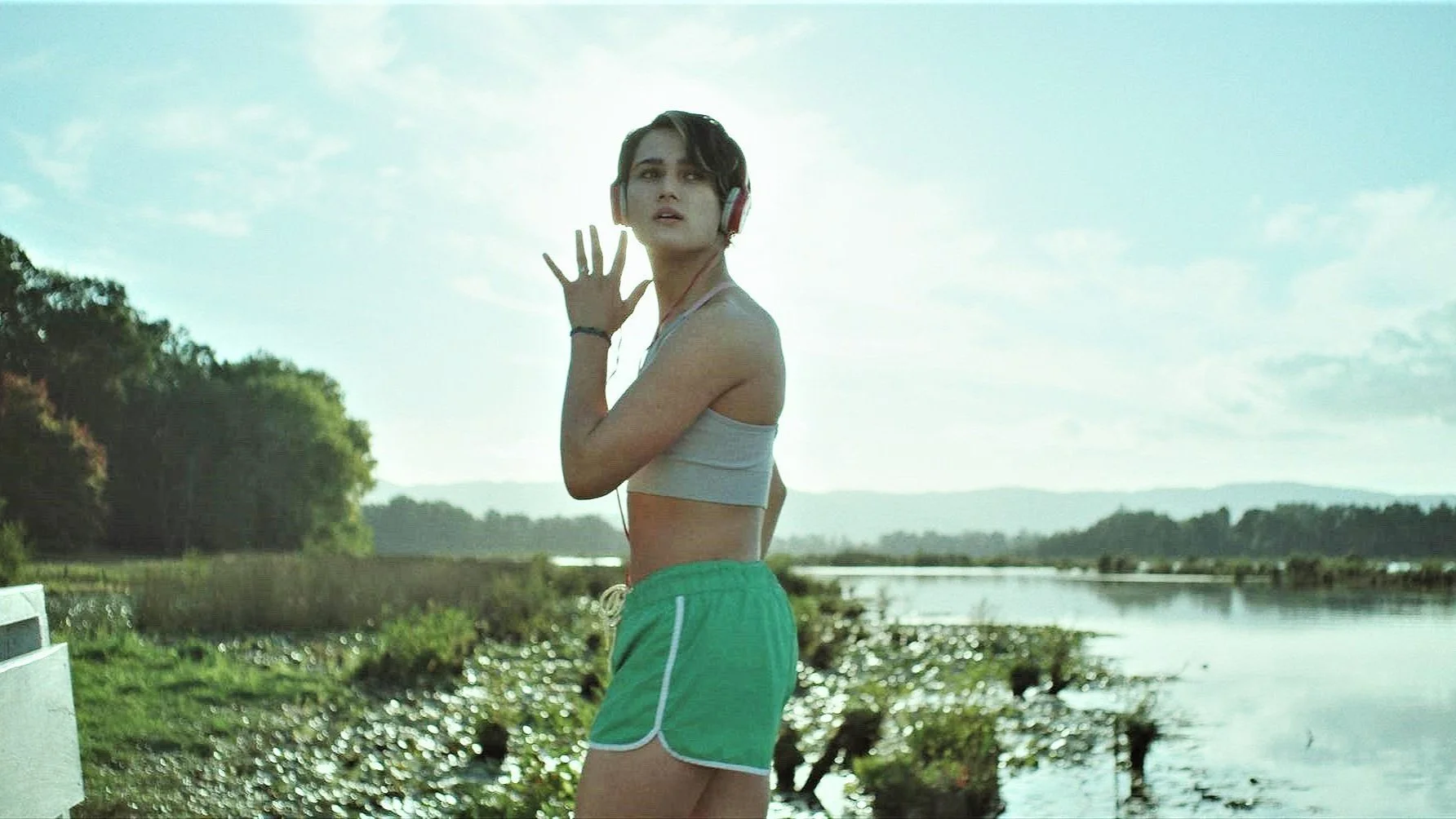The Cow Who Sang a Song Into the Future
An impressive debut from Chile proves to be one of the most hauntingly individual films of recent times.
The title of this film from Chile is so bizarre that it hardly needs saying that Francisca Alegría’s first feature is a very strange piece. But, even if personal taste will doubtless lead some to avoid it, it is important to assert that this is a true work of art. Indeed, from the very outset the film, superbly photographed by Inti Briones and with an outstanding music score by Pierre Desprats, is strikingly imaginative. A pre-credit sequence shows us shots of trees, of plants and of mushrooms which, while establishing the importance of the natural world in this film, also hint at the cycles to be found in nature which encompass decay and rebirth. Making this opening even more potent is the song which accompanies these images, a choral invitation to come closer, to consider how the past has withered and to ponder if the end is nigh. The lyrics also indicate something of the story that is about to unfold: it tells us that a drowned woman will come back, this being not an isolated incident but part and parcel of the general cycle of life.
The woman in question is Magdalena (Mía Maestro) who surfaces unchanged in appearance from the river in which she had committed suicide many years before when her daughter, Cecilia, was but seven years old. The resurrected Magdalena is basically mute but returns to her old home and to her family. Her now aged husband, Enrique (Alfredo Castro) still owns a dairy farm but glimpsing his dead wife is so stressful that he suffers a collapse and his son Bernardo (Marcial Tagle) is called in to help run the business. The adult Cecilia (Leonor Varela) also arrives bringing with her her two children, young Alma (Laura del Rio) and teenage Tomás (Enzo Ferrada Rosati). Present too is an elderly neighbour, Felicia (María Velásquez), who had been close to Magdalena at the time of her death.
Alegría is brilliantly successful in creating a two-toned film. All of the casting is admirable and, despite the surreal framework providing a key element, she ensures that all of the living characters are convincingly real. In time, be it in the house or in the woods nearby, Magdalena will be seen by each of the family members in turn and we will become aware of the tensions between them, tensions born either of old history or of current social attitudes in which materialism trumps concerns for the environment generally and for the way in which the cows on the farm are treated. The wider issues here exist alongside the particular problem of Tomás which arises from the fact that he now identifies as a woman but finds that his mother is unsupportive dismissing it as a phase.
It is a clever touch that Magdalena is wordless because her silent presence causes each person to respond and to open up in his or her own way. Furthermore, with facial expressions carrying so much significance as do moments when Magdalena reaches out to touch, Mía Maestro is able to give a performance of a very distinctive kind which proves ideal. If it turns Magdalena into a haunting presence, it also means that she is no conventional ghost figure. Instead, she comes to symbolise memories of the past. For old Enrique that may mean confronting his own contribution to the events that led to her suicide (a theme that is inadequately followed through but which is at the same time the nearest this film comes to cliché). But for the others she is a reminder both of her values (including disapproval of the cruelties in dairy farming) and of her free spirit. In the case of Tomás he finds courage in her example and this part of the film is particularly strong thanks to the unforced and fully persuasive acting by Enzo Ferrada Rosati.
There is no doubt that this film is deeply concerned about today's environmental issues and the extent to which the natural world is threatened and it is ambitious both in the unorthodox approach that it takes to that and in combining this with a domestic tale. Much of this comes off far better than one might have expected including the reprise of the opening song with fresh lyrics which, as the title suggests, is now made expressive of the outlook of the cows. This element comes across as genuinely mythical while at the same time avoiding anything sentimental, the latter also being eschewed in the treatment of the family drama. There are, I think, times in the second half when the film is less surefooted and the strange tale isn’t ultimately shaped in a way that fully expresses its potential. But much here is clear evidence of Francisca Alegría being a true artist with a vision of her own and she has found a very satisfying final shot with which to close her film.
MANSEL STIMPSON
Cast: Mía Maestro, Leonor Varela, Enzo Ferrada Rosati, Benjamin Soto, Alfredo Castro, Laura del Rio, Marcial Tagle, Luis Dubó, Frederique Gudelj, Camilo Arancibia, Maximiliano Jair, Javier Navarette.
Dir Francisca Alegría, Pro Tom Dercourt and Alejandra Garcia, Screenplay Francisca Alegria, Fernanda Urrejola and Manuela Infante Ph Inti Briones, Art Dir Bernardita Baeza, Ed Antes Chignoli and Carlos Ruiz-Tagle, Music Pierre Desprats, Costumes Consuelo Fernandez.
Cinéma Defacto/Wood Producciones/Match Factory Productions/Dialectic/Jirafa Films/Bord Cadre Films-Sovereign Films.
98 mins. France/Chile/Germany/USA/Switzerland/UK. 2022. UK Rel: 24 March 2023. Cert. 15.


